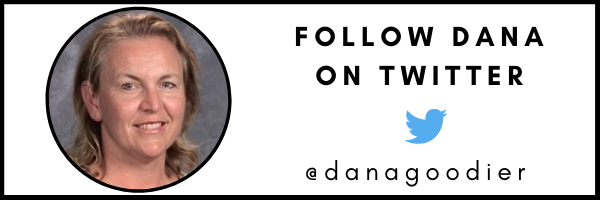TL;DR:
- Keep school culture strong.
- Stay consistent with policies for tardies and absences.
- Consider students who have improved for awards.
- Administrators can use problem areas as places for making connections.
- Always start with One Good Thing.
The Administrator Mastermind discussed the topic Connection vs. Compliance during the month of March. These discussions take place on Tuesday mornings at 9 AM EST. During this time, several leaders have come up with ideas on how to connect more with our students and encourage our staff to make these connections as well. This should be built into school culture. Otherwise, there is often a sense of compliance from staff who may feel “forced” to do something the administration mandates when the school culture shows that things are starting to get rough.
Go into the last quarter of the school year by remembering connections. Click To TweetLet’s not wait until the last minute to address school culture issues with staff!
This is something that I have seen happen in several buildings I’ve worked in. When tardies and disciplinary infractions stack up as they tend to do around this time of year, both classroom teachers and administrators who handle discipline and attendance feel the burden of this overwhelm. By implementing a system where the deans and attendance secretaries are able to identify students who have 4+ tardies (such as running reports, using Tableau or other software that provides drilled-down attendance data), they won’t need to have teachers keep an eye on the number of tardies students in their classes have.
It’s great to have teachers send a warning email home about 3+ tardies. The bottom line is to stick to the school attendance policy regarding tardies. Whether it’s having students serve detention, do campus beautification, or participate in another school-based community service, this can be determined by the MTSS and/or attendance team.
Student Ambassadors: WEB Leaders
This time of year, many middle and high schools are asking for nominations of students going into the upper grades who would be great WEB leaders. Students who are exemplary often come to mind. However, I suggest also nominating those who may have had attendance or disciplinary issues in the past and who have learned and grown from their mistakes. These student leaders will greet new and prospective students as they tour the building or be a shadow “buddy” on the new students’ first day. These students are also in charge of planning activities for incoming freshmen or 6th graders on their first day(s) or during a freshman/6th-grade institute that may take place a week before school starts in the fall.
Principals on Mobile Desks
Another thing that stood out from the Mastermind discussion was that one of the participants places her mobile desk outside the boy’s restroom which is the discipline “hot spot” of the building. As the boys exit, she engages in conversations about their grades, classes, and extracurricular activities. If you’re an AP or principal and you don’t have a mobile desk, using something as simple as an old overhead projector or TV cart from storage will suffice. Being visible in the hallway as you complete administrative tasks on your computer goes a long way toward positive school culture and reduced disciplinary infractions.
[scroll down to keep reading]Start Mornings With “One Good Thing”
Another idea to add if you’re not already doing this is to start your morning with “one good thing.” This practice comes from a school I was a dean at that used the “Capturing Kids’ Hearts” program. This involved staff-wide training with a focus on relationships and connections with students from the get-go.
As part of CKH, ask students 3 good things they can share when a class or meeting starts. You don’t have to ask more than a few students. You should model this so they share school-appropriate things and don’t go off on a tangent. This is common practice in elementary schools with morning meetings or connection time. However, in secondary schools, many of us are guilty of going right into instruction or the meeting agenda without taking time for connections. Make it a point to ask at least one good thing each morning.
Go into the last quarter of the school year by remembering connections. We don’t want to be stuck having to address negativity in terms of school culture after the fact. Be proactive, not reactive. Implemented school-wide, these practices will become commonplace.
About Dana Goodier
Dr. Dana Goodier has 23 years of experience in education. She has taught World Languages and English and worked as a middle school administrator. She completed her doctorate degree (Ed.D.) in Educational Leadership early 2020. For her dissertation, she researched reasons parents were opting their students out of high-stakes testing at middle schools and how that affected the district accreditation rating.
She often speaks at conferences, providing educators with techniques to minimize off-task behavior and to increase time on task. Goodier is the host of the “Out of the Trenches” podcast, which features educators who share their stories of resiliency. She is also the author of the book, “Out of the Trenches: Stories of Resilient Educators.”
Follow her on Twitter @danagoodier and visit her website at: www.danagoodier.com





